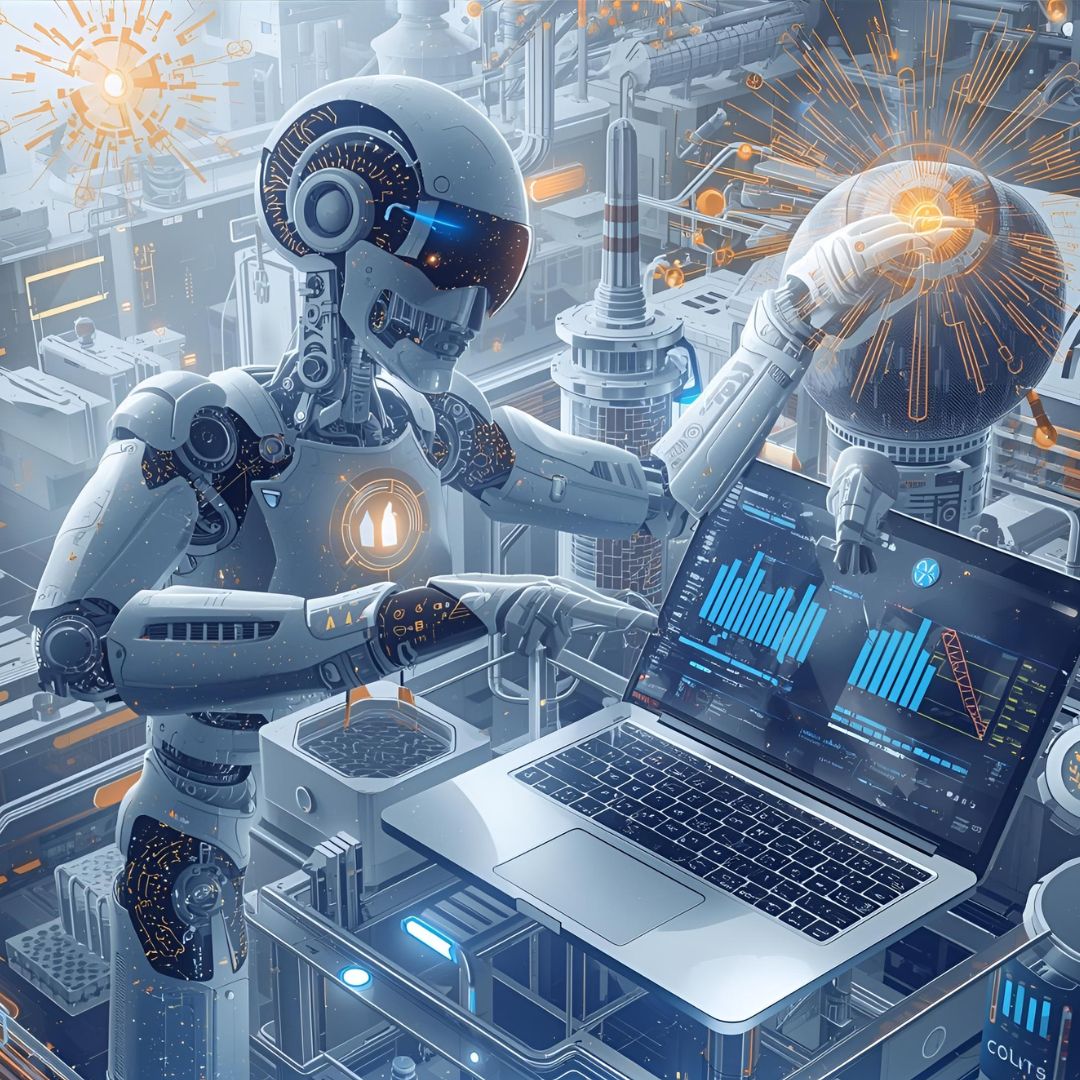Estimated reading time: 9 minutes
Key Takeaways
- AI marketing automation integrates artificial intelligence (Machine Learning, NLP, Predictive Analytics) into traditional marketing tools for intelligent, personalized customer interactions.
- It drives significant benefits including enhanced personalization at scale, vastly increased efficiency, smarter data analysis, and optimized campaign performance.
- AI transforms every stage of the customer journey automation, from precise lead generation and automated nurturing to conversion optimization and proactive retention strategies.
- Essential AI features in marketing tools encompass predictive analytics, dynamic content optimization, natural language processing, advanced segmentation, and multichannel campaign management.
- Successful implementation mandates clear goal definition, thorough data auditing, a phased “start small, scale up” approach, judicious tool selection, and continuous monitoring and optimization.
- Embracing AI marketing automation is a non-negotiable strategic imperative for businesses aiming for competitive advantage and sustainable growth in the modern digital landscape.
Table of contents
- The Future of Engagement: Mastering AI Marketing Automation for Unprecedented Growth
- Key Takeaways
- Introduction: The Modern Marketing Imperative
- What is AI Marketing Automation? A Game Changer for Modern Marketing
- The Transformative Power of AI in Marketing Automation
- Enhanced Personalization at Scale
- Increased Efficiency & Productivity
- Smarter Data Analysis & Insights
- Optimized Campaign Performance
- Improved Customer Experience
- Revolutionizing the Customer Journey with AI-Powered Automation
- Lead Generation & Qualification
- Automated Nurturing
- Conversion Optimization
- Retention & Loyalty
- Essential AI Marketing Automation Tools & Workflow Automation Software
- Core Features to Look For in AI Marketing Tools:
- Categories of Workflow Automation Software Leveraging AI:
- Selection Considerations:
- Implementing AI Marketing Automation: Best Practices for Success
- Define Clear Goals
- Audit Your Existing Data
- Start Small, Scale Up
- Choose the Right Tools
- Monitor, Test, and Optimize
- The Future is Automated: Why AI Marketing Automation is Non-Negotiable
- Conclusion
- Frequently Asked Questions
Introduction: The Modern Marketing Imperative
Imagine trying to keep track of thousands, even millions, of customers, all wanting something different. That’s the challenge for today’s marketers. The contemporary marketing landscape is complex, filled with vast amounts of data, high customer expectations for personalization, and constant demands for efficiency. Marketers often struggle with delivering tailored messages across many different channels and managing complicated campaigns. It feels like a never-ending juggling act, trying to reach the right person with the right message at the perfect time.
This is where AI marketing automation steps in as the pivotal solution. It’s a game-changer that integrates the power of artificial intelligence to revolutionize traditional marketing automation tools. This amazing synergy allows marketers to move beyond simple rule-based systems to create intelligent, predictive, and truly personalized customer interactions, all on a massive scale. Think of it as having a super-smart assistant who not only follows your instructions but also learns and anticipates what your customers want.
In this detailed guide, we’ll dive deep into AI’s crucial role in modern marketing. We’ll uncover its many benefits, explore key applications like customer journey automation, and highlight essential workflow automation software that can bring your marketing efforts into the future. Get ready to discover how AI is making marketing smarter, faster, and more effective than ever before.
What is AI Marketing Automation? A Game Changer for Modern Marketing
So, what exactly is AI marketing automation? Simply put, it’s the strategic integration of artificial intelligence capabilities into conventional marketing automation tools. This means combining smart computer programs that can learn and think (AI) with systems that handle repetitive marketing tasks automatically.
These AI capabilities include things like:
- Machine learning: Computers that learn from data without being explicitly programmed.
- Natural language processing (NLP): Computers that can understand and generate human language.
- Predictive analytics: Using data to forecast future events or customer behaviors.
This blend is what makes AI marketing automation a true game-changer.
The biggest difference between AI automation and traditional automation is how they work. Traditional marketing automation relies on predefined rules. For example, “if a customer clicks on X, send them email Y.” It’s like a flowchart where every step is set in advance. But AI takes this much further. It learns from vast amounts of data, makes intelligent decisions on its own, and adapts in real-time as customer behavior changes. Instead of just following rules, AI understands patterns and can predict what will happen next.
This allows AI to do things that traditional systems can’t. It enables hyper-personalization, meaning messages are tailored precisely for each individual. It offers dynamic content optimization, where the content itself changes based on who is viewing it. And it provides predictive insights, going beyond simple rules to truly understand and anticipate customer needs.
The core purpose of AI marketing automation is clear: to streamline marketing processes, enhance targeting accuracy, optimize campaign performance, and ultimately improve the return on investment (ROI). It does this by creating highly relevant and timely customer experiences, making every interaction more meaningful and effective. This smart approach transforms how businesses connect with their audience, leading to unprecedented growth.
The Transformative Power of AI in Marketing Automation
Artificial intelligence fundamentally changes how businesses interact with customers and manage their campaigns. It’s not just an improvement; it’s a complete transformation. Here’s a closer look at the key benefits that highlight the transformative power of AI in marketing automation:
Enhanced Personalization at Scale
Imagine being able to send a unique, perfectly tailored message to every single customer. AI makes this possible. It processes vast amounts of customer data—including behavioral patterns (what they click, what they view), demographic information (who they are, where they live), and transactional history (what they buy, how often)—to identify individual preferences and predict their next actions. This deep understanding allows businesses to deliver hyper-relevant content, suggest products customers are most likely to love, and offer promotions at precisely the right moments. This ability to create one-to-one marketing experiences, even for millions of customers, is a hallmark of AI-driven strategies. It’s about making every customer feel seen and understood.
Increased Efficiency & Productivity
Many marketing tasks are complex, data-intensive, and repetitive. This includes things like analyzing performance data, segmenting customer lists, scheduling email sends, and constantly tweaking campaign settings. AI excels at automating these routine yet time-consuming tasks. By taking over these operational burdens, AI frees human marketers from the mundane. This means your team can spend less time on manual work and more time on what truly matters: strategic planning, developing creative and innovative campaigns, and tackling high-level problem-solving that only human ingenuity can address. The result is a more efficient marketing department that achieves more with fewer resources.
Smarter Data Analysis & Insights
In today’s digital world, businesses are swimming in data. This data comes from countless sources: Customer Relationship Management (CRM) systems, web analytics, social media channels, sales records, and more. AI has an incredible ability to rapidly analyze these massive datasets, no matter how disparate they are. Unlike human analysts, AI can process information at lightning speed and uncover hidden patterns, subtle trends, and actionable customer behaviors that might otherwise go unnoticed. These deeper insights drive data-informed decisions, allowing marketers to understand their audience better, predict market shifts, and fine-tune their strategies for maximum impact.
Optimized Campaign Performance
The goal of any marketing campaign is to get the best possible results. AI uses predictive analytics to forecast customer actions with remarkable accuracy. This leads to highly effective targeting, ensuring that your messages reach the most receptive audience. It also enables personalized content delivery, meaning the ads and messages customers see are directly relevant to their interests. Furthermore, AI can manage dynamic bidding strategies in advertising platforms, automatically adjusting bids to get the best return on ad spend. Perhaps most importantly, AI allows for real-time campaign adjustments. It can automatically tweak elements like email subject lines, optimal send times, and even the creative assets in ads based on how people are responding, ensuring campaigns are always performing at their peak for maximum engagement and conversion.
Improved Customer Experience
At its heart, marketing is about building relationships. AI-driven tools facilitate seamless, consistent, and highly responsive interactions across all customer touchpoints. This can include intelligent chatbots that provide instant support and answer common questions, proactive outreach based on predicted needs, and consistent brand messaging across email, social media, and your website. By providing customers with smooth, personalized, and helpful experiences at every stage, businesses can foster stronger relationships and build lasting brand loyalty. Happy customers are loyal customers, and AI helps create that happiness.
Revolutionizing the Customer Journey with AI-Powered Automation
The traditional customer journey used to be seen as a straight line, but with AI, it transforms into a dynamic, individualized experience. Customer journey automation powered by AI moves beyond simple sequences to create truly personalized paths for each person. Let’s explore how AI reshapes every stage of this journey.
Lead Generation & Qualification
Finding potential customers and figuring out who is most likely to buy is a critical first step. AI revolutionizes this process with sophisticated lead scoring models. These models analyze a wide range of data, including website activity (what pages they visit, how long they stay), campaign engagement (which emails they open, what ads they click), and demographic information. Based on this analysis, AI predicts the likelihood of a lead converting into a paying customer. This means sales and marketing teams can prioritize high-potential prospects, focusing their efforts where they’ll have the biggest impact. This optimizes resource allocation and significantly improves conversion rates. Beyond just scoring, AI can also intelligently identify entirely new lead sources and refine ideal customer profiles, helping businesses discover untapped markets.
Automated Nurturing
Once you have a lead, you need to nurture them, guiding them with relevant information until they’re ready to buy. AI supercharges automated nurturing by powering personalized email sequences, dynamically changing content within those emails, and recommending “next-best-action” steps based on a customer’s real-time behavior. For instance, if a customer specifically opens an email about a certain product feature or visits a particular product page on your website, AI can instantly trigger a tailored follow-up email with more detailed information, a case study, or even a special offer related to that specific interest. This intelligent responsiveness keeps customers engaged with highly relevant content at every step.
Conversion Optimization
Getting a potential customer to make a purchase or take a desired action is the ultimate goal. AI significantly enhances conversion optimization. It implements dynamic content on landing pages and websites, meaning the page itself can personalize its content for each visitor. This personalization might be based on their segment (e.g., small business vs. enterprise), their previous behavior, or even the source that brought them to your site. Furthermore, AI-driven offer generation tools can recommend compelling discounts or incentives at precisely the right conversion points, based on what the AI predicts will be most effective for that individual, leading to higher conversion rates.
Retention & Loyalty
The journey doesn’t end with a sale; keeping customers happy and loyal is just as important. AI plays a crucial role in predicting customer churn by identifying early warning signs in their behavior. For example, a drop in engagement, fewer website visits, or a decrease in purchases could trigger an alert. This enables proactive support teams to reach out and targeted re-engagement campaigns to be launched, often before the customer even considers leaving. Additionally, automated loyalty programs can deliver personalized rewards, special communications, and exclusive content based on customer value and preferences. This fosters long-term relationships, increases customer lifetime value, and turns customers into brand advocates.
The core message here is profound: AI’s ability to create truly individualized paths throughout the entire customer journey automation lifecycle means every interaction is tailor-made. This level of personalization and responsiveness builds stronger connections and drives consistent business growth.
Essential AI Marketing Automation Tools & Workflow Automation Software
The market is buzzing with a wide array of marketing automation tools that are quickly integrating AI capabilities. Choosing the right ones can feel overwhelming, but understanding the core features and categories of workflow automation software can help businesses make smart decisions.
Core Features to Look For in AI Marketing Tools:
When evaluating different platforms, here are the essential AI-powered features that can make a real difference:
- Predictive Analytics & Lead Scoring: These features use AI to forecast customer behavior, such as their likelihood to convert, churn, or make a specific purchase. AI-driven lead scoring automatically prioritizes prospects, telling your sales team which leads are most ready to buy.
- Dynamic Content Optimization: This allows your website, emails, and ads to change their content in real-time based on who is viewing them. AI analyzes visitor data to personalize text, images, and offers for maximum relevance and engagement.
- Natural Language Processing (NLP): NLP enables computers to understand, interpret, and generate human-like text. This is crucial for AI-powered chatbots that can handle customer inquiries, sentiment analysis that gauges customer mood from text, and even assisting with content creation.
- Advanced Segmentation: Beyond basic demographic grouping, AI-driven clustering can identify nuanced customer groups based on complex patterns in their behavior, preferences, and interactions. This allows for incredibly precise targeting.
- Multichannel Campaign Management: Effective AI tools orchestrate personalized experiences seamlessly across all your marketing channels: email, social media, web, mobile apps, and paid advertising. This ensures a consistent and cohesive message no matter where your customer is.
- CRM and Data Integration: For AI to work its magic, it needs access to all your customer data. Robust integration capabilities with existing Customer Relationship Management (CRM) systems and other data sources are vital for providing AI with a unified, comprehensive view of each customer.
Categories of Workflow Automation Software Leveraging AI:
Many different types of workflow automation software are now specifically designed for marketing, and they are increasingly showcasing AI leverage:
- Email Marketing Platforms: AI in these platforms goes beyond simple scheduling. It optimizes subject lines for higher open rates, suggests the best send times based on individual recipient behavior, recommends content for email campaigns, and refines segmentation to ensure messages are highly targeted.
- CRM & Sales Automation Software: Here, AI provides powerful sales forecasting, predicting future revenue and identifying potential challenges. It offers next-best-action suggestions for sales reps, automatically prioritizes leads based on their readiness to buy, and performs sentiment analysis on customer communications to gauge interest and satisfaction.
- Content Marketing & SEO Tools: AI is a strong ally in content creation. It assists with in-depth keyword research, generates topic ideas for blog posts, helps create comprehensive content briefs, performs plagiarism checks, and optimizes content for search engines to improve visibility.
- Social Media Management Tools: These tools use AI to identify optimal posting times for maximum audience reach and engagement. They analyze audience sentiment to understand public perception, and aid in content curation and highly targeted ad placement on social platforms.
- Customer Service & Chatbot Platforms: AI-powered chatbots are at the forefront of customer service. They can handle routine inquiries, qualify leads by asking relevant questions, provide instant 24/7 support, and intelligently route more complex issues to human agents when needed.
Selection Considerations:
When choosing your marketing automation tools and workflow automation software, businesses should consider several key factors:
- Specific Needs: What are your primary marketing challenges and goals?
- Existing Tech Stack: How well will the new tools integrate with your current systems?
- Budget: What is your allocated investment for these technologies?
- Scalability: Can the tools grow with your business as your needs evolve?
Prioritize platforms that offer robust integration capabilities, strong data privacy features, and a user-friendly interface that your team can easily learn and adopt. The right tools, powered by intelligent AI, will be the backbone of your modern marketing strategy.
Implementing AI Marketing Automation: Best Practices for Success
Adopting AI marketing automation isn’t just about buying new marketing automation tools or workflow automation software. Successful implementation requires a strategic approach that goes beyond simply flicking a switch. Here are best practices to guide your journey:
Define Clear Goals
Before you even think about specific tools, it’s crucial to articulate specific, measurable, achievable, relevant, and time-bound (SMART) objectives. What exactly do you want to achieve with AI? Examples include:
- Improving lead conversion rates by 15% in the next six months.
- Reducing customer churn by 10% next year.
- Increasing customer lifetime value through personalized engagement.
Clear goals are like a compass; they guide your tool selection, inform your strategy, and provide a benchmark for measuring success. Without them, you’re just automating for automation’s sake, which often leads to wasted resources and disappointing results.
Audit Your Existing Data
AI is only as smart as the data it learns from. Therefore, you must stress the importance of ensuring your data is clean, accurate, accessible, and integrated across all your systems. This means your Customer Relationship Management (CRM) platform, your existing marketing automation platform, website analytics, and any other relevant data sources should be talking to each other. AI thrives on high-quality, comprehensive data. A stern warning here: poor data quality will inevitably lead to flawed AI insights, inaccurate predictions, and ineffective automated campaigns. Invest time in data hygiene and integration before fully deploying AI.
Start Small, Scale Up
Resist the temptation to try and automate everything at once. This “big bang” approach often leads to overwhelming complexity and potential failures. Instead, suggest starting with a specific, manageable segment of your customer journey automation or a focused campaign. For instance, you could begin by optimizing email send times using AI, personalizing product recommendations on your website, or automating a specific lead nurturing sequence. The key is to emphasize learning from these initial projects, refining your approach based on the results, and then gradually scaling up to more ambitious automation initiatives. This iterative process allows your team to adapt and build confidence.
Choose the Right Tools
The market is flooded with options, so selecting the appropriate marketing automation tools and workflow automation software is critical. Your choices must be closely aligned with your defined goals, compatible with your existing technology infrastructure, and within the capabilities of your team to manage and optimize. Prioritize platforms that boast strong AI capabilities, robust integration options with other systems (like your CRM), and clear, insightful reporting features. A user-friendly interface is also vital to ensure adoption and efficient use by your marketing team. Don’t pick the flashiest tool; pick the one that fits your strategic needs best.
Monitor, Test, and Optimize
It’s a common misconception that AI is “set-it-and-forget-it” technology. This is far from the truth. Advise continuous monitoring of key performance metrics to understand how your AI-driven strategies are performing. Implement A/B testing (or multivariate testing) for AI-driven elements – for example, testing different AI-generated subject lines or personalized content variations. Use the insights gained from these tests to refine your strategies and improve the AI’s effectiveness. Stress that regular optimization is not just a suggestion; it’s essential for ensuring continuous learning and maximizing the ongoing effectiveness of your AI marketing automation efforts. The marketing landscape is always changing, and your AI should be continually adapting with it.
The Future is Automated: Why AI Marketing Automation is Non-Negotiable
In today’s fiercely competitive digital landscape, embracing AI marketing automation is no longer a luxury for cutting-edge companies; it is a strategic imperative. Businesses that choose to leverage the power of AI for deeper customer understanding and hyper-personalized engagement gain a significant, often insurmountable, competitive advantage.
Consider this: customers now expect tailored experiences. They are used to streaming services recommending movies they’ll love and online stores suggesting products based on their browsing history. Generic, one-size-fits-all marketing messages simply fall flat. AI allows businesses to meet these elevated customer expectations, fostering stronger connections and building unwavering brand loyalty.
Its importance extends to staying relevant in a world where technology is constantly advancing. Companies that fail to adapt risk being left behind by nimbler, AI-powered competitors. AI marketing automation enables businesses to efficiently scale their marketing efforts, achieving far more with fewer manual interventions and optimizing every dollar spent. This leads to better campaign results, higher conversion rates, and a stronger bottom line.
As artificial intelligence continues to advance and become even more sophisticated, its integration into every aspect of business operations, especially marketing, will deepen. This makes AI marketing automation truly non-negotiable for modern organizations aiming to not only survive but thrive and achieve sustainable growth in the years to come. The future of customer engagement is here, and it’s intelligent, personalized, and automated.
Conclusion
AI marketing automation represents a profound and exciting shift in how businesses connect with their audiences. It’s more than just a technological upgrade; it’s a new way of thinking about customer relationships and operational efficiency. By integrating artificial intelligence into powerful marketing automation tools and intelligent workflow automation software, businesses unlock unprecedented levels of personalization, efficiency, and insight.
We’ve seen how AI transforms every stage of the customer journey automation, from predictive lead scoring that identifies your most promising prospects to dynamic content that ensures every message resonates perfectly. It optimizes campaign performance, freeing human marketers to focus on creativity and strategy, while also significantly enhancing the overall customer experience, building stronger relationships and lasting loyalty.
Adopting the right AI-powered strategies and choosing the appropriate tools are key steps to elevating your marketing efforts and securing a formidable competitive edge. The time to embrace this transformative technology is now. We strongly encourage you to explore the immense potential of AI for your marketing strategies. Dive in, experiment, and watch your business achieve unprecedented growth and deeper customer connections in this new era of intelligent marketing.
Frequently Asked Questions
The primary benefit is achieving hyper-personalization at scale, allowing businesses to deliver highly relevant messages and experiences to individual customers, even across vast audiences.
AI analyzes vast amounts of customer data (behavioral, demographic, transactional) to understand individual preferences and predict future actions, enabling dynamic content optimization and tailored product recommendations in real-time.
Absolutely. AI excels at predicting customer churn by identifying early warning signs, enabling proactive outreach and personalized re-engagement campaigns. It also powers automated loyalty programs that deliver tailored rewards.
AI leverages diverse data sources including CRM systems, web analytics, social media interactions, sales records, email engagement, and more to build comprehensive customer profiles and drive intelligent decisions.
While large enterprises benefit greatly, AI marketing automation is increasingly accessible to businesses of all sizes. Scalable tools and cloud-based solutions allow even small to medium-sized businesses to leverage AI for improved efficiency and growth.





